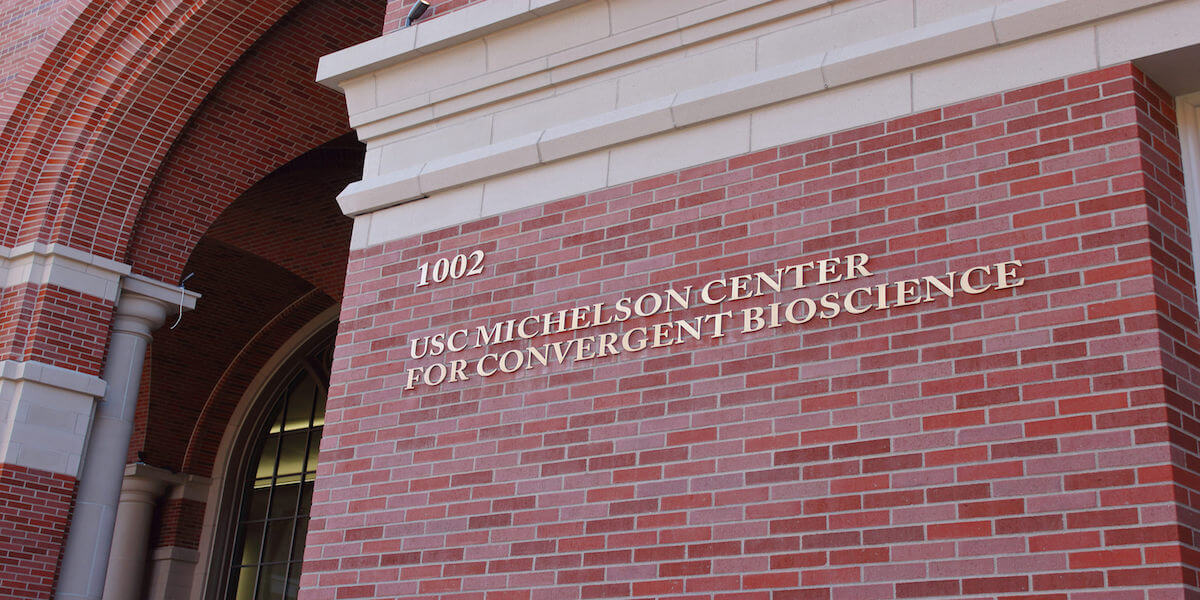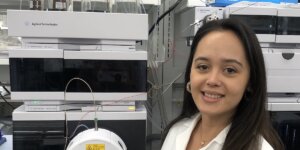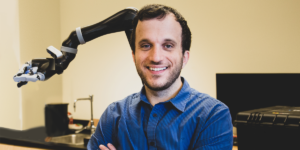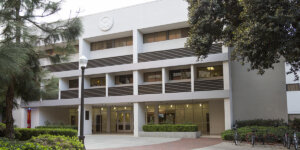
USC Michelson Center for Convergent Bioscience / Photo By Dylan Cavez
Imagine this: A research team comprised of some of the greatest scientific minds cutting across disciplines like Stephen Hawking, Sigmund Freud, and Elon Musk working together – in the same lab.
Think of the discoveries that would come out of a lab like that. That’s what USC’s Michelson Center for Convergent Bioscience is working towards, and now they’ve taken a strategic step to make it a reality.
The USC Michelson Center for Convergent Bioscience, which opened its doors on October 2017, brings together a diverse network of expert scientists and engineers from the USC Viterbi School of Engineering, the USC Dornsife College of Letters, Arts and Sciences, and the Keck School of Medicine of USC. They have partnered with Agilent Technologies Inc, an American-based public research, development, and manufacturing company based in Silicon Valley.
Some of the innovations that have recently come out of Agilent range from a new color stain for easier cancer diagnosis within skin and lung tissues, to a new software to help reduce the cost of managing electronic data associated with long-term storage requirements.
The partnership will establish the Agilent Center of Excellence in Biomolecular Characterization (COE), a facility that will be located inside the Michelson Center.
Richard Roberts, USC professor and chair of the Mork Family Department of Chemical Engineering and Materials Science, is co-director of COE and no stranger to the idea of collaboration across disciplines. Roberts holds joint appointments with USC Viterbi and USC Dornsife in the Chemistry and Molecular Computational Biology departments while pursuing his research in peptide and protein engineering via mRNA display. He has made tremendous breakthroughs in the chemical biology of protein synthesis, helping researchers better screen peptide and protein sequences.
“It’s easy for scientists to live in their bubbles and not communicate to the world what they’re doing. It requires an effort outside of the lab to make those communications happen,” Roberts mentioned in a 2014 Viterbi article.
Roberts will be co-director of COE with USC professor of chemistry Valery Fokin. Fokin is best known for “click chemistry,” a method that finds the most reliable chemical reactions to build molecules that can accurately test pharmaceutical drugs.
“This partnership is very much a two-way street and is much larger than just a physical facility,” explained Fokin.
USC brings expertise and access to skilled scientists and researchers where Agilent brings in cutting-edge technologies that will contribute to COE’s scientific discoveries.
Research will range from diagnostics of diseases like cancer and diabetes, neurology research of human conditions to drug discovery. This will transform the way traditional research is conducted— scientists and engineers will work side-by-side to confront the most critical health issues.
“Convergence means losing the formal disciplinary boundaries— at different levels and with different tools,” Fokin said. “It’s more than just a collaboration.”
What makes Agilent Technologies an ideal partner is that besides being commercial, they are very much science-driven and understand the needs of scientists. Many USC researchers already use Agilent instruments in their labs, so establishing a partnership is a natural transition.
It’s also important to note that USC is not a drug discovery company and is more or less “in the business of understanding of how things work,” Fokin added. Coupling this with industry expertise expands USC’s footprint and opportunity for impact in modern science and discovery.
“External focus is very important at Agilent, and that includes partnering with the world’s leading academic institutions,” said Darlene Solomon, chief technology officer and senior vice president of Agilent Technologies. Solomon was also recently honored with Viterbi’s Daniel J. Epstein Engineering Management Award this past April at the 40th Viterbi Awards.
The Agilent Center of Excellence aims to become a leader in modern science, proving that more can be discovered through collaboration than separately within isolated disciplines. USC researchers will interface with Agilent researchers and customers, providing opportunities like joint seminars to help researchers, engineers, and scientists understand what their minds and technologies are capable of.
The opening of the center has two phases, with the first slated to begin this summer. The Agilent Center of Excellence plans to be fully open for operation later this year.
The USC Michelson Center for Convergent Bioscience brings together a diverse network of premier scientists and engineers under one roof, thanks to a generous $50 million gift from orthopedic spinal surgeon, inventor and philanthropist Gary K. Michelson, and his wife, Alya Michelson. At the Michelson Center, scientists and engineers from the USC Dornsife College of Letters, Arts and Sciences, USC Viterbi School of Engineering and Keck School of Medicine of USC are working to solve some of the greatest intractable problems of the 21st century in biomedical science, including a fundamentally new understanding of the cell and new approaches for cancer, neurological and cardiovascular disease.
Published on May 30th, 2018
Last updated on February 11th, 2021











